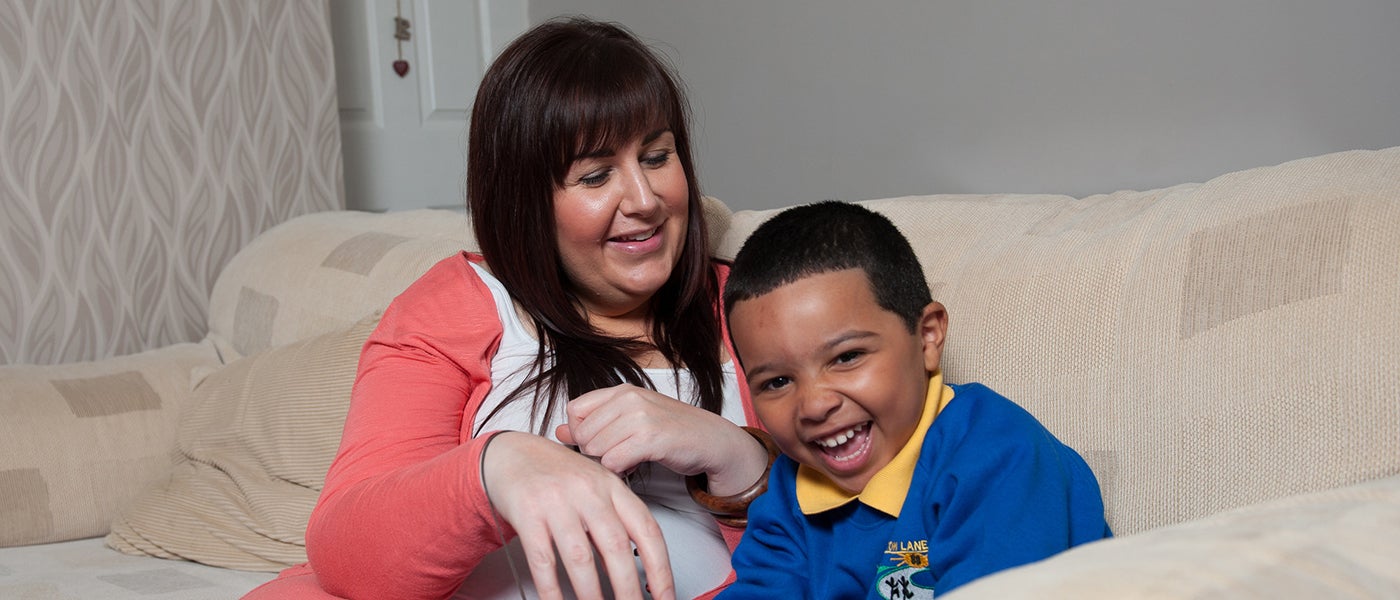- Home
- News and stories
- Life costs more for disabled children and their families
Life costs more for disabled children and their families
 26 February 2019
26 February 2019
There are some memories that parents and carers cherish for the rest of their lives - the moment a child plays with their first toy, the day their child rides a bike, or their first family holiday. But for many families with disabled children, these milestones come with an unwelcome disability price tag.
New research from Scope shows that, on average, a family with a disabled child would have to pay £581 a month to have the same standard of living as a family with a non-disabled child. For 1 in 5 families, these extra costs come to more than £1000 a month.
A range of more goods and services drive up the cost of raising a disabled child. Play, for example, often costs more if you are disabled. Specialist toys tend to be significantly more expensive than those sold to non-disabled children.
Due to these extra costs, disabled people have a lower standard of living than non-disabled people even when they earn the same
Garry, a father to 3 disabled children and one non-disabled child, says he’s noticed the disability price tag; “Phoebe has a new bike. It cost £90. Curtis had a new bike recently. It was £600. Why? additional needs!”
Meanwhile, the high cost of travel insurance means that summer holidays can be particularly expensive for families with disabled children. Some companies charge more to insure disabled people with certain conditions or impairments, while others deny cover altogether. As Garry explains; “Holiday insurance is more, and the choice of providers is always limited. There are some good providers who provide good value, but unlike families without disabled children, we can't just pop in to the post office to get our insurance or use a more mainstream provider.”
Even getting around tends to cost more if you have a disabled child. The difficulty of finding accessible public transport means that parents often have to shell out for taxis and private-hire vehicles just so their child can get to school or have an active social life. Even parents or carers who can use their own cars to get about can face extortionate parking costs if they need to attend regular hospital appointments.
Disabled children often benefit from treatments such as physiotherapy, hydrotherapy, speech and language therapy and physiotherapy. But parents and carers have to pay out of their own pocket for these. Helen, whose 5-year-old son, Jack, is autistic, says that she probably pays around £600 a month in therapies. “I do that privately, because the services are in such a shambles at the moment”, she explains.
Scope are calling for the financial inequality disabled people and their families face to end once and for all
All these costs add up, meaning that parents and carers can find it difficult to give their children the support they need to get the best start in life. Given the financial impact of this inequality, it is particularly important that the social security system gives parents and carers with disabled children the support they need.
Universal Credit – a benefit that provides financial support to people on low incomes, including those who are out of work – has a crucial role to play in helping disabled people and their families to build financial resilience and meet the extra costs they face.
But the rollout of Universal Credit risks leaving some families with disabled children worse off. Under the current tax credits system, a parent or carer receives extra money if their child receives Disability Living Allowance (DLA). Currently, this is paid at one of 2 rates, depending on how much DLA the child receives. While Universal Credit includes also includes 2 rates of payments for families with a disabled child, the new lower rate is half the current lower rate. This will mean a significant drop in income for many families with disabled children.
As Scope’s research shows, families with disabled children face a significant financial inequality. The government should be doing everything it can to close that gap. But if the government does not act to ensure that families with disabled children continue to receive the same support after they have been moved to Universal Credit, the gap could get wider instead.
 26 February 2019
26 February 2019





